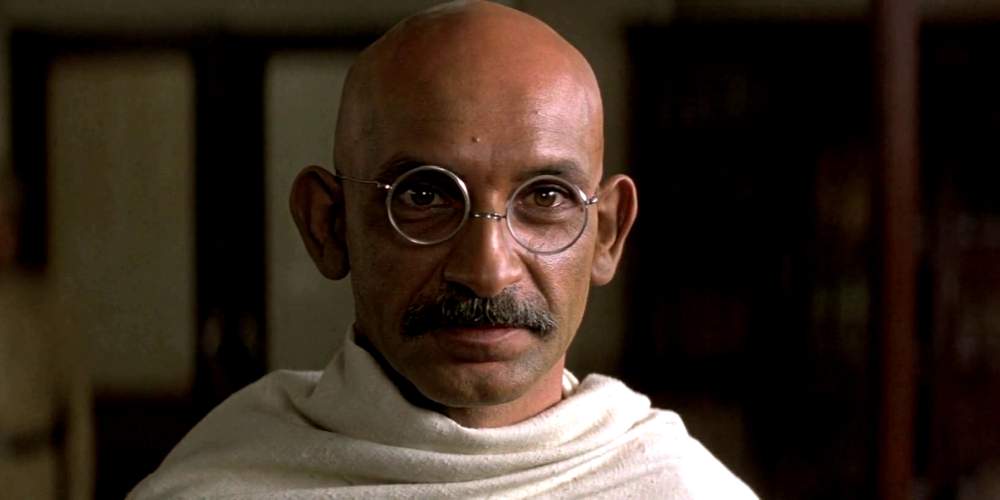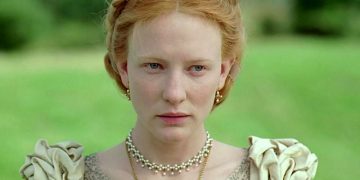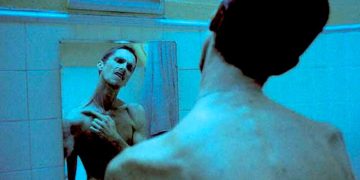Harper Lee's Atticus Finch once said: "You never really understand a person until you consider things from his point of view—until you climb inside his skin and walk around in it."
It's a skill that some are blessed with more than others. And even though Finch may have been a literary character, the words ring true and apply to those who choose the acting profession.
Meaning, only a few actors have that special factor where we can see they've truly stepped into the shoes of another—a real person whom they're portraying in biographical form—to capture their essence, to fully transform themselves into another person.
Here are our picks from throughout film history for men who gave the best biographical performances in biopic movies.
8. Daniel Day-Lewis in Lincoln (2012)
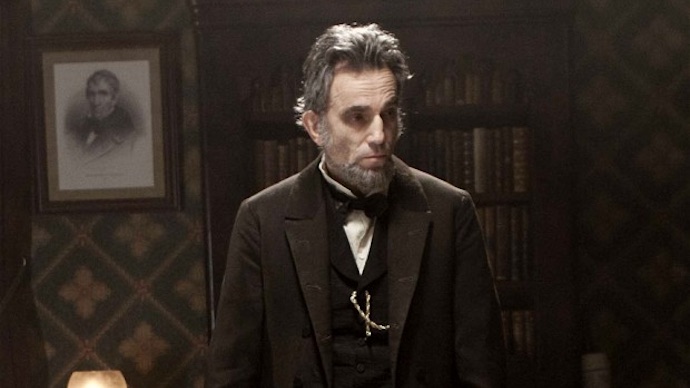
When Daniel Day-Lewis signed on to portray the iconic President Abraham Lincoln, most knew that whatever performance he conjured up would be worthy of yet another Academy Award nomination.
The dignity that permeated Day-Lewis' performance made his portrayal the only one that really mattered, with a voice that was both soothing and important without ever falling into overbearing command.
In Lincoln, Daniel Day-Lewis brought across a man who struggled with his place in history as he fought for what he knew was right.
Daniel Day-Lewis won an Oscar for the role, making him the only person to win three Academy Awards for Best Actor—and in the years since, his performance in Lincoln has only grown in stature.
7. Denzel Washington in Malcolm X (1992)
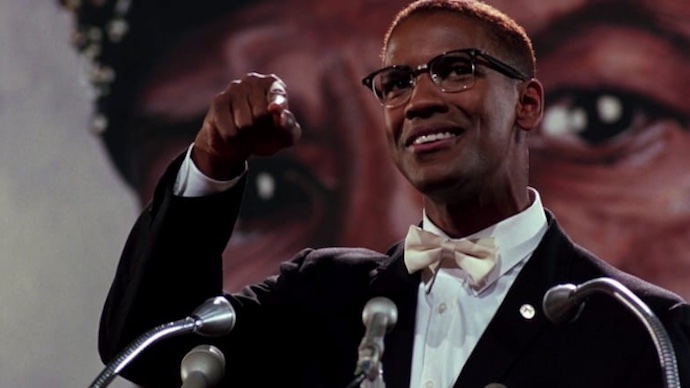
Denzel Washington has had many performances that could be considered his finest, but his role in Spike Lee's 1992 biographical drama Malcolm X remains the one performance that truly marked the height of Washington's stellar acting career.
In Malcolm X, Denzel Washington becomes Malcolm X to such a degree that every other portrayal of the activist has proven disappointing by comparison. Denzel was so good in the role that he made it untenable for anybody else to handle.
Denzel's Malcolm X is everything the real-life person was, showing a maturity in the role that comes with the passing of time and a deep understanding of the man he's portraying. It's the perfect blend of confidence, vulnerability, and inspiration.
6. Philip Seymour Hoffman in Capote (2005)
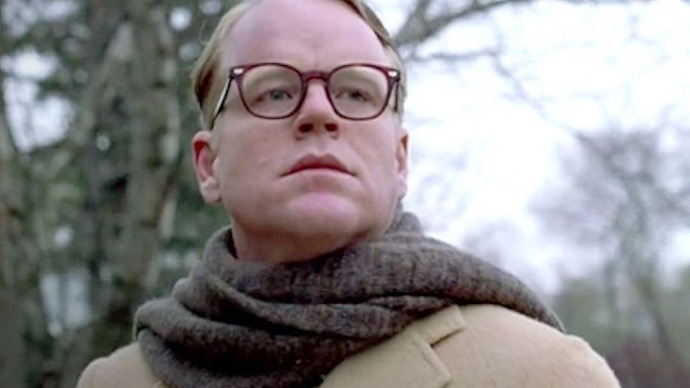
The life of Truman Capote is a subject that still fascinates many in the literary field. Truman Capote was a legendary wordsmith who one day stopped being able to write books after developing a case of writer's block so paralyzing that he never got over it.
With Philip Seymour Hoffman in the role, Truman Capote came to life on the screen via the gifted character actor. Hoffman became the writer with an intensity that drew audiences into his world, even as he remained a mystery to everybody in his life around him.
Hoffman captured the man's mental state through his performance, allowing us insight into the mind of a man who was so affected by his writing subject that it may have been the very thing that led Capote to develop his writer's block—but we can never be sure.
The role earned Philip Seymour Hoffman an Academy Award for Best Actor, and it's a performance that feels more and more deserved in the years since the death of the actor.
5. Al Pacino in Serpico (1973)
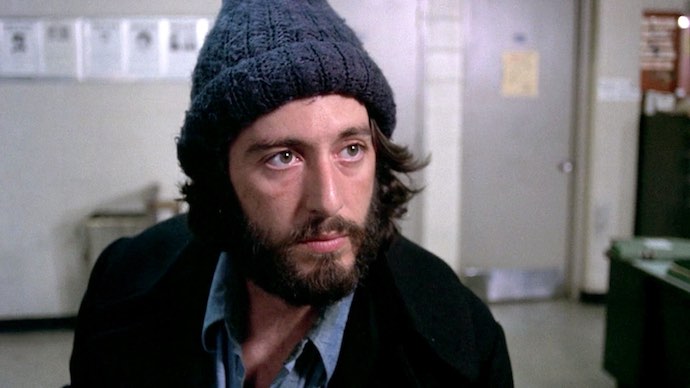
The story of Frank Serpico was still fresh in the minds of New Yorkers when Serpico came out in 1973. After all, the film was produced quickly following Serpico's revelations during his investigation.
Al Pacino, who'd only recently rose to fame after starring in 1972's The Godfather, was also still fresh in the mind of Hollywood. It almost seemed as if the role and the actor were made for one another.
Al Pacino took the lead role in Serpico, diving into the world of Frank Serpico with an intellectual depth that could only come from someone who had a fundamental understanding of Serpico's motivations.
As Serpico, Pacino masterfully portrayed a man who was destined to be scarred by his experiences in the police force, showing us the weight on his shoulders that got heavier with every scene.
Today, Pacino's performance as Serpico is fading away into the annals of cinema history—but for those of us who've seen it, it's masterful.
4. Ben Kingsley in Gandhi (1982)
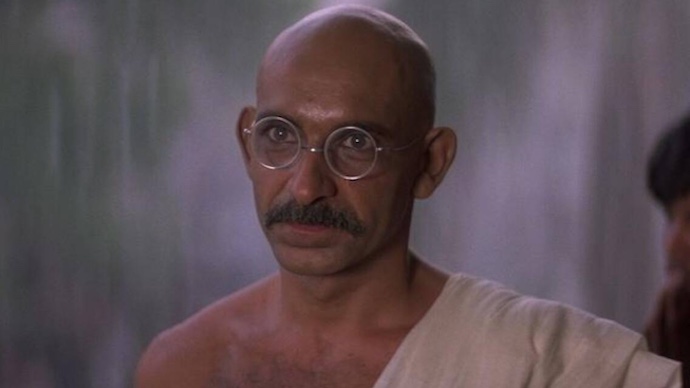
When a movie hangs on the shoulders of the one person in the leading role, it can feel overwhelming for audiences. Why? Because we know we need to form an emotional bond with that character if we're to truly understand the visceral depth of the film.
In the case of Ben Kingsley's portrayal of Mahatma Gandhi in Gandhi, the celebrated actor made that connection on a profound level that grips tighter and tighter as the picture progresses.
Kingsley gives Gandhi a reprise from the image that usually adorns the walls of history, ensuring that Gandhi isn't merely seen as an icon. Rather, he's shown as a man who's both flawed yet inspirational.
For his performance, Kingsley earned an Academy Award for Best Actor and made Gandhi a role that few could take on afterwards.
3. Peter O'Toole in Lawrence of Arabia (1962)
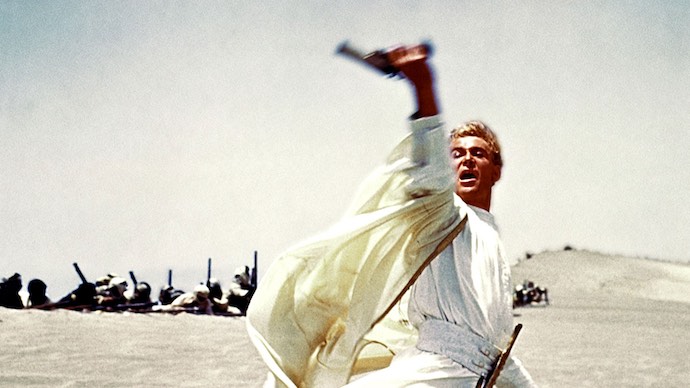
T.E. Lawrence, the man who united the Arab armies under Faisal, is an iconic figure—as much for what he did in real-life as for Peter O'Toole's performance as the eponymous man in Lawrence of Arabia.
Few actors would be able to handle a film as epic as David Lean's magnum opus and still come through as the central figure in a story that's as expansive as Lean's work.
As T.E. Lawrence, O'Toole captured a man who was coming to terms with the war-time task ahead of him. His pressures are felt as much as his victories, and O'Toole never relents from his ever-maturing character.
Indeed, he provides a depth in his portrayal that sees T.E. Lawrence continually remain in the minds of those who adore cinema.
Peter O'Toole's performance in Lawrence of Arabia garnered him an Academy Award nomination, but he lost out on awards night—which has since come to be seen as a mistake from the Academy.
2. Liam Neeson in Schindler's List (1993)
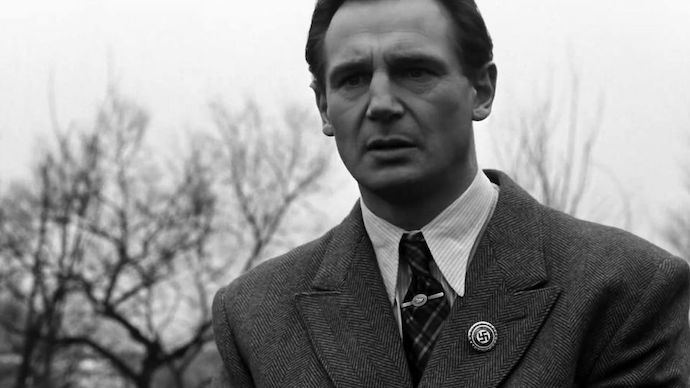
To properly tell the story of Oskar Schindler and his extraordinary bravery during a time of genocide, one would need a performance that could hold audiences in their seats and control their emotional responses.
In Liam Neeson, Steven Spielberg found such a performance.
As the famed member of the Nazi party, Liam Neeson gave Schindler a proper portrayal as the man who's somewhat opportunistic and money-driven later transformed by the evil he witnesses. Schindler ends up compelled by a will to help rather than a will to personal wealth.
Neeson's performance becomes faultless in his final scene, in which he departs from his factory—having rescued the lives of over a thousand people—as the facade finally drops, and he reveals his heartbreak over not getting even more people to safety.
No other actor could have given a better performance as Oskar Schindler, and it's hard to imagine that anybody else ever will.
1. Daniel Day-Lewis in My Left Foot (1989)
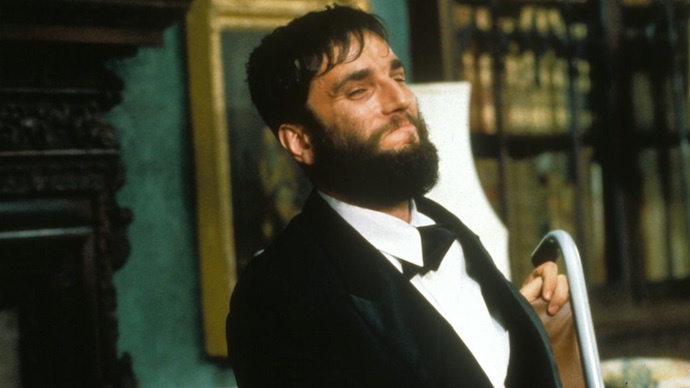
For a film that lost funding during filming, My Left Foot doesn't feel like it was made with such stresses on the production crew. Instead, it feels like a moment of destiny for Daniel Day-Lewis—a moment in which he could showcase his immense abilities in a leading role.
In the role of Irish poet Christy Brown, Daniel Day-Lewis isn't an actor; he's a spirit through which Christy allowed himself to be portrayed.
Day-Lewis' dedication to ensuring that Christy was given dignity and character beyond his disability all came down to his approach when stepping into the role of the famed poet. He pushed himself to his limits, showing he could make even the smallest people into giants on screen.
To this day, Christy Brown is better remembered outside of Ireland due to Daniel Day-Lewis' portrayal than he is for his work, and that just shows how remarkable Day-Lewis was as the man.
